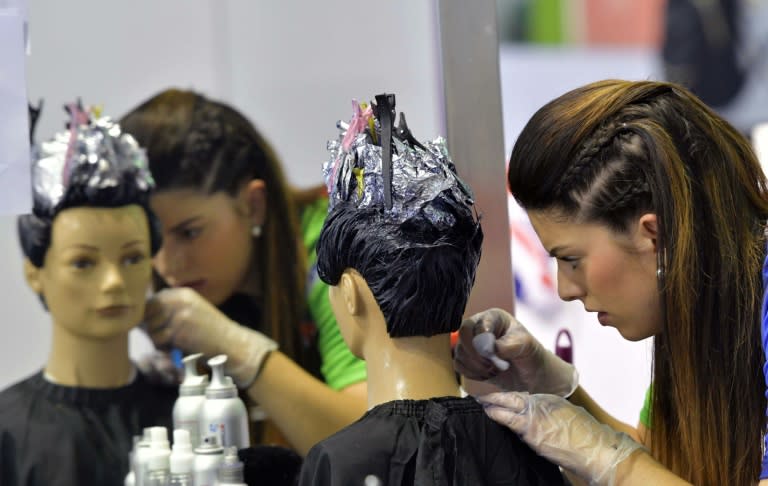UAE boosts prestige of trades with world competition
The oil-rich United Arab Emirates, seeking to elevate the prestige of vocational skills among its youth, this week hosted a global trades competition -- the first in the Middle East. At the Abu Dhabi convention centre on Wednesday, schoolgirls in tartan uniforms followed their teachers past contestants engrossed in aircraft maintenance and hairdressing competitions. Foreign competitors from as far afield as Norway and China rubbed shoulders with Emirati college students, men in traditional white robes and women in black flowing gowns. They were some of the thousands of UAE students bussed in on field trips to see some 1,300 competitors take part in WorldSkills Abu Dhabi 2017, billed as the world's top vocational skills competition. "The leadership of the UAE really wants to show their population the opportunities that vocational skills offer to young people," WorldSkills International spokesman Crispin Thorold told AFP. Vocational jobs in the Gulf are often filled by migrant workers and seen as less prestigious than careers in the army, government or business. Thorold said that was not unique to the Middle East. "There are very few countries... where there is genuine equality in the minds of parents and the minds of teachers between academic qualifications and vocational qualifications," he said, singling out Germany and Finland as exceptions. - 'Stick with welding' - Don Robertson, from the US state of Missouri, flew to the Middle East for the first time to support his son Jonathan in the automotive technology contest. Jonathan first took up the trade as an extracurricular subject. During his junior year of high school, he heard of the global competition through his skills club. "He came back home and was telling his mother that, 'Oh yeah, they have a world skills contest and I'm gonna go,'" Don said smiling as his son, now 22, focused on his task during an hours-long competition. "For Jonathan it was a great thing because he was never one we could see going on to a four-year school to be an engineer or work in an office setting," he said. "He was very good with his hands and he did have a natural interest in automobiles." Robertson said he believes schools are now putting more emphasis on "the hands-on trades". For his son, the trade has already opened doors in the form of an internship at General Motors. Over at the welding competition, Mohammed Youssef Ali Bandar from Kuwait recalled his family's initial resistance to his career path. "When I first wanted to do welding for a living, my parents said 'Why! You'll be like a labourer driving around in a pick-up truck full of gas cylinders,'" he told AFP with a grin. He nearly switched topics at his technical institute, but one of his instructors encouraged him to stick with welding. "He said you never know what might come your way," Bandar recalled. He ended up graduating at the top of his class and secured a job at Kuwait's Public Authority for Applied Education and Training. That gave him the opportunity to study in the US for his engineering degree, and this week he was in Abu Dhabi to serve as coach for the Kuwaiti competitor in the welding contest. "If I hadn't continued as a welder I would have had to join the army and I never would have gotten a higher education," he said. He admitted the job was dangerous and said some students are initially nervous around the welding flame. "But they always go for it," he said.




